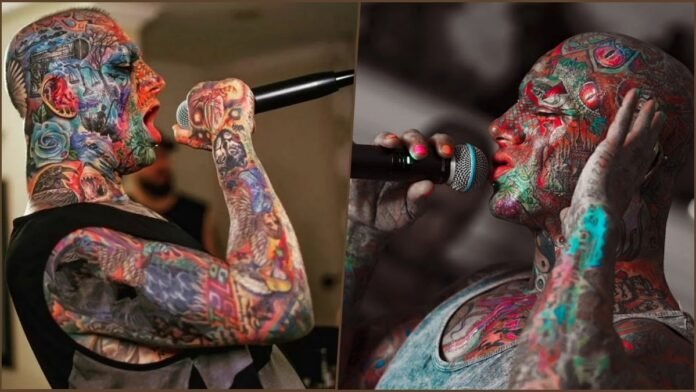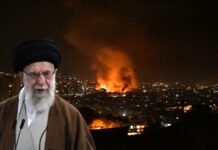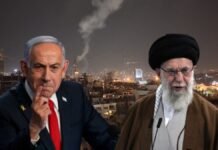
Key Points:
- Death Sentence for Blasphemy: Iran’s Supreme Court overturned a previous five-year sentence and handed singer Amir Tataloo a death penalty for allegedly insulting Prophet Mohammed.
- Charges Include: Blasphemy, promoting prostitution, spreading anti-government propaganda, and publishing obscene content.
- International Spotlight: Tataloo, a 37-year-old underground musician, was extradited from Turkey in 2023 and has been detained in Iran since.
- Political Connections: Once courted by conservative Iranian politicians, Tataloo’s controversial career included a televised meeting with former President Ebrahim Raisi.
- Appeal Possible: The death sentence is not final and can still be appealed.
Tehran, Iran: In a shocking and highly controversial decision, Iran’s Supreme Court has sentenced Amir Hossein Maghsoudloo, popularly known as Tataloo, to death for blasphemy. The ruling follows an appeal against a previous five-year prison sentence handed down to the 37-year-old singer for charges including blasphemy, promoting prostitution, and spreading anti-government propaganda.
The court’s decision to impose the death penalty has drawn widespread criticism and heightened international scrutiny over Iran’s treatment of dissenting voices and artists.
Blasphemy Charges and Court Ruling
The case, initially resulting in a five-year prison sentence, was reopened after the prosecutor objected to the leniency of the punishment. The reformist newspaper Etemad reported that the court found Tataloo guilty of insulting Prophet Mohammed, a charge carrying the ultimate penalty under Iranian law.
The verdict, while severe, is not final and can still be appealed. However, the ruling underscores the restrictive and punitive environment for free expression in Iran.
A Troubled Journey: From Istanbul to Tehran
Tataloo had been living in Istanbul, Turkey, since 2018 but was extradited to Iran in December 2023 after being detained by Turkish authorities. Since his return, he has been held in Iranian custody, where he faced multiple charges, including disseminating “propaganda” against the Islamic Republic and publishing content deemed obscene by the government.
A Polarizing Artist with a Political Past
Known for his heavily tattooed appearance and unique blend of rap, pop, and R&B, Tataloo has been a polarizing figure in Iranian society. While he resonated with liberal-minded youth, his edgy persona and lyrics often clashed with Iran’s conservative norms.
Ironically, Tataloo was once courted by Iran’s conservative politicians as a bridge to younger, more liberal audiences. In 2017, he had a widely criticized televised meeting with ultra-conservative then-President Ebrahim Raisi, who later died in a helicopter crash.
From Political Ally to Target
In 2015, Tataloo controversially released a song supporting Iran’s nuclear program. While it earned him brief favor among conservatives, his subsequent actions and outspoken nature alienated him from the establishment. Over the years, he has faced increasing scrutiny and legal troubles, culminating in his current plight.
A Death Sentence Amid Global Criticism
The sentencing comes amid heightened international criticism of Iran’s judicial system, particularly its use of capital punishment. Tataloo’s case has drawn comparisons to others where Iran has been accused of stifling dissent through extreme punishments.
Supporters and human rights organizations have called for global intervention, emphasizing that the charges against Tataloo are part of a broader pattern of suppressing artistic and political freedom.
The Road Ahead: Uncertain but Critical
As Tataloo’s legal team prepares to appeal the ruling, his case serves as a stark reminder of the challenges faced by artists and dissenters in authoritarian regimes. The outcome of the appeal will likely determine whether Tataloo becomes another martyr for free speech or if international pressure can save his life.
This high-profile case has not only reignited debates about freedom of expression in Iran but has also placed a spotlight on the dangers faced by those who dare to challenge the status quo.



















































